Rosh Hashanah 2017/5778
Shana Tova
I want to share a secret. I have some perfectionist tendencies. If you don’t
believe me ask my family or the Temple’s Executive Committee. I try to hold
back, but sometimes I just can’t help but over engineer. I consciously tell myself it
is good enough, but my subconscious keeps working. Last year in my Rosh
Hashanah speech, I compared Isaiah to a train ride with each train car
representing a different aspect of Temple life and we as a congregation riding
together and sharing our respective Jewish journeys. I thought it was a good
analogy, but then my perfectionism kicked in. How, given that Judaism and Isaiah
speak to us each differently, could we share a single train with a single
destination?
Our relationship with Isaiah is varied and changes based on our stage of life, our
life experiences, and world events. This is part of what makes Isaiah great –
being so multidimensional and supporting us in many different ways. When I was
writing my speech last year I thought of changing the analogy from a single train
to the entire Massachusetts Bay Transportation System with buses, trollies,
ferries, and railroads, but that analogy seemed a little complicated. I was stuck
and what do you do when you are Isaiah’s President and you are stuck on your
High Holiday speech? You ask Rabbi Jaffe.
Of course, Rabbi Jaffe had great suggestions. I edited my speech, and thought at
that time, that my analogy had the correct parallelism. But after the High
Holidays, that perfectionist voice woke up and kicked in. Rabbi Jaffe’s suggestions
were good, very good, but the more I got to know the Isaiah family, the more I
realized that we wanted different destinations and what I was hoping to
accomplish as President, which was represented by the analogy, was going to
derail. What does a perfectionist President do with a problem he can’t solve even
after consulting with our esteemed clergy?
He forms a committee. Actually, in this case we already had formed a working
group, and I just needed to get out of the way. The working group was charged
with updating Isaiah’s vision and mission statement, our Sh’ma and V’ahavta,
building off of the lectures and sermons that Rabbi Larry Hoffman gave last
September. Frankly, I was shocked at how quickly the team gelled around a
couple of core themes that represented Isaiah’s aspirations as a synagogue. The
exact wording, well that took a little bit longer but in the end, the team was able
to express Isaiah’s Sh’ma in just five words; deepening lives, inspiring purpose,
together. As a result of the Sh’ma, my perfectionist voice quieted down.
Although we did not develop an exact destination for Isaiah, I felt and still feel
that our Sh’ma unifies us with a shared direction. I again want to thank the team
for their hard work, dedication, and their results. Synthesizing everyone’s input
into a five-word vision is very impressive.
Once we completed the Sh’ma, the leadership team started working on the really
hard part - making our Sh’ma a reality. In researching the best approach for
moving forward, we spoke to an expert who asked us a simple question: what
would Isaiah feel like if we were living our Sh’ma? (PS it is always those simple
questions that get you). The rabbis, cantor and some lay leaders went to work,
and came up with a list of feelings consistent with deepening lives, inspiring
purpose, together.
But then Charlottesville hit, and I realized, for me and not speaking for others,
that I need for Isaiah to help me experience two opposite feelings. On one hand, I
love that Isaiah makes me feel comfortable - a place where I feel welcome, can be
myself, and can take strength from others. A second home. Many of you
participated in the survey we co-sponsored with the URJ that benchmarked Isaiah
in relation to other synagogues. Of the 200 plus data points that we reviewed,
the one where Isaiah was ranked the highest by you compared to how other
congregations ranked their respective synagogues was on how warm and
welcoming we are. The importance of being warm and welcoming was reflected
in the survey, is the first thing that comes to mind when I speak with fellow
congregants about what makes Isaiah great, especially new members, and is a
behavior that our clergy and professional staff model better than anyone I have
ever met.
As much as I value feeling comfortable, I also need the opposite. I need Isaiah to
make me uncomfortable. If I am to live a Jewish life, if I am to honor my parents,
my ancestors, and the many who sacrificed so that Judaism can still exist today, I
need Isaiah to make me uncomfortable. Uncomfortable in taking public stands on
controversial issues. Uncomfortable in speaking out on policies that some might
view as being political. Uncomfortable in raising issues that will be divisive.
Uncomfortable in helping me see my own biases and faults.
I wish we lived in a world where we did not need to feel uncomfortable, but we
do not. In our society, there is nationalism to the point of advocating hate for
those that do not fit a certain definition, a lack of acceptance for individuals of
different sexual orientations, and fundamental race, economic and health
inequality. As Jews of the world, we also are challenged by a lack of respect for
the Reform movement in Israel.
These challenges are not the result of a single country or political party, nor do
the solutions to these challenges fit neatly into a box. This is the world we live in,
and I understand why some congregants want to block it out and not bring these
conversations into our synagogue. Many of us, including myself, long for a break
from the bickering, and want Isaiah to be a safe haven, a comfortable place.
However, if we are to share a ride on the Isaiah train in the direction of our
Sh’ma, if we are to be a congregation that deepens lives, inspires purpose,
together, then not only can we not block these items out, we need to be a beacon
of instituting change.
The good news is I am very confident that Isaiah can do uncomfortable in a
comfortable way. As an example, after the workgroup developed the preliminary
version of the Sh’ma and V’ahavta, we held feedback sessions and solicited input
on the statements. Two items were consistently called out for not being
specifically mentioned: Israel and God. While God and Israel might not be the
most divisive topics, these two items certainly elicit a broad spectrum of opinions
across Isaiah – very broad. Yet as we discussed should we or how do we add
these two items to the Va’havta, the conversations were always civil and each
opinion respected. In the end, I believe that as a congregation we knew our
V’ahvta needed to challenge us, to make us a little bit more uncomfortable, and
we were able to work through our different opinions in a comfortable way.
When I stood here last year and asked you to join me on the Isaiah train, I focused
on our shared journey and the many activities and programs Isaiah offers. This
year, 5778, I also am asking you to join me on the Isaiah train, but as the
landscape has changed, we need to shift our focus to the direction of the train.
An Isaiah train that intentionally moves us down the path of living a Jewish life.
An Isaiah train where we are a beacon to others in creating change. An Isaiah
train that will be both comfortable and uncomfortable. An Isaiah train where we
fulfill our Sh’ma of deepening lives, inspiring purpose, together.
Before I conclude I want to thank you. Some of my most vivid memories revolve
around Rosh Hashanah: as a young child having dinner with my extended family
and listening to my great aunts and uncles tell story after story, walking to shul
with my best friend and sitting in the back row of the balcony during adult
services, greeting my grandparents with the world’s biggest hug when morning
services concluded, and as an adult going to our first High Holiday service at
Temple Isaiah with my wife Jodi and our daughters Hannah and Rebecca. I now
have another memory to add, the privilege of having addressed you these past
two years.
L’shanah Tova.
Mon, November 3 2025 12 Cheshvan 5786





